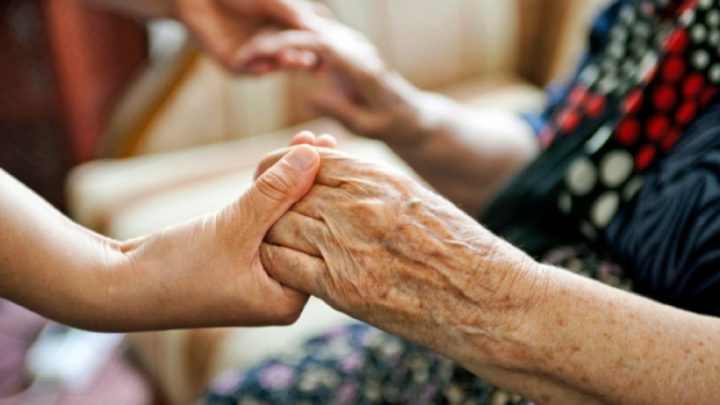
British Columbia’s seniors advocate has released several recommendations following a survey of publicly subsidized residential care homes in the province.
Isobel Mackenzie released the report on Friday. It is being called the largest survey of its kind in Canada of elderly people living in B.C.’s residential care facilities.
According to Mackenzie, the survey involved more than 20,000 British Columbians, including 10,000 people who live in residential care facilities and 10,000 family members. There was a range of questions on residents’ experiences of day to day activities, care, food quality, staff responsiveness, physician care and social connectedness. The survey was conducted was June 2016 and May 2017.
The findings of the review highlight the need for more staff, freedom and conversation, Mackenzie said in a statement.
“Residents need more help in some areas reflecting the fact there are not enough staff; many are lonely and want to be talked to and engaged and they want what we all do, more freedom to control all aspects of their day to day lives from when they get up in the morning to what time of day they eat their meals,” Mackenzie said.
Almost 90 per cent of those questioned feel safe and almost as many say they are treated with respect, according to the report, but 62 per cent say they don’t get to bathe or shower as often as they’d like.
1 in 4 residents sometimes, rarely or never get help to the toilet says #rescaresurvey https://t.co/t8ZtDmnlFp
— SeniorsAdvocateBC (@SrsAdvocateBC) September 15, 2017
Only 57 per cent of residents report that the care facility regularly feels like home, the report concluded.
The advocate said it is clear staffing levels are a major concern for residents and their families.
“While staff overall are caring and respectful, consistent feedback is that there simply are not enough staff to ensure residents’ needs are taken care of when they need to be,” Mackenzie said in the report. “Inadequate staffing levels lead to inconsistency among care aides and ultimately an erosion of important interpersonal interactions between staff and residents.”
#rescaresurvey 88% of family members feel that they are involved in decisions that impact their loved ones
— SeniorsAdvocateBC (@SrsAdvocateBC) September 15, 2017
Insufficient staff also hampers the ability for flexibility in care and delivery such as bathing and eating times, Mackenzie said in the report, as well as reduces the ability for care providers to offer diverse and engaging social and leisure activities for residents.
62% of residents don't get to bathe when they want #rescaresurvey https://t.co/t8ZtDmnlFp
— SeniorsAdvocateBC (@SrsAdvocateBC) September 15, 2017
Mackenzie’s eight recommendations include increasing staffing levels in care facilities, increasing flexibility around when and how care, services and activities are delivered, and increasing activities for weekends and evenings.
The other recommendations are to provide better physician care either through general practitioners or increasing the role of nurse practitioners , examining opportunities to improve mealtime, foster greater engagement with family members, provide on-going education for all care staff on the importance of resident emotional well-being, and use the survel tool to ensure progress is monitored.
The positive response from the surveys include:
- 50 per cent of residents rated the overall quality of the care home as very good or excellent with 83%
of residents believing the staff know what they are doing - 88 per cent of family members report being involved in decisions about the care of their loved one
- 80 per cent of residents indicate they get the services they need
- 65 per cent of family members rated the facility 8 or higher when 10 was the highest possible score
- 88 per cent feel safe in the care home
- 86 per cent of residents feel staff treat them with respect
- 88 per cent of family members or most frequent visitors report that facility staff addresses their
concerns always or most of the time
The areas of improvement include:
- 62 per cent of residents say they do not get to bathe or shower as often as they want
- 25 per cent of residents say they sometimes, rarely or never get help to the toilet when needed
and 25 per cent of residents report staff tries to relieve physical discomfort sometimes, rarely or never - More than 33 per cent of residents report they are not consistently getting the help they need at
mealtimes - Almost 46 per cent of residents report there is no one living in the facility that they consider a close
friend and 45 per cent report there is no one for them to do things with - 46 per cent of residents say staff regularly make time for friendly conversation
- 49 per cent of residents only sometimes, rarely or never have the same care aide on most weekdays
- 40 per cent of residents living in residential care do not want to be there
- 57 per cent of residents report that the care facility regularly feels like home
Every Voice Counts: Office of the Seniors Advocate Residential Care Survey Provincial Results




